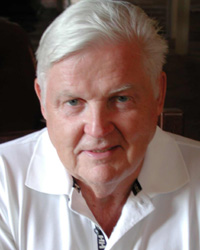 The idea that the euro has “failed” is dangerously naive. The euro is doing exactly what its progenitor – and the wealthy 1%-ers who adopted it – predicted and planned for it to do. According to Robert Mundell, the creator of the Optimum Currency Zone concept, the euro would really do its work when crises hit. Removing a government’s control over currency would prevent nasty little elected officials from using Keynesian monetary and fiscal juice to pull a nation out of recession. More about the evil genius of the euro via the Guardian.
The idea that the euro has “failed” is dangerously naive. The euro is doing exactly what its progenitor – and the wealthy 1%-ers who adopted it – predicted and planned for it to do. According to Robert Mundell, the creator of the Optimum Currency Zone concept, the euro would really do its work when crises hit. Removing a government’s control over currency would prevent nasty little elected officials from using Keynesian monetary and fiscal juice to pull a nation out of recession. More about the evil genius of the euro via the Guardian.
That progenitor is former University of Chicago economist Robert Mundell. The architect of “supply-side economics” is now a professor at Columbia University, but I knew him through his connection to my Chicago professor, Milton Friedman, back before Mundell’s research on currencies and exchange rates had produced the blueprint for European monetary union and a common European currency.
Mundell, then, was more concerned with his bathroom arrangements. Professor Mundell, who has both a Nobel Prize and an ancient villa in Tuscany, told me, incensed:
“They won’t even let me have a toilet. They’ve got rules that tell me I can’t have a toilet in this room! Can you imagine?”
As it happens, I can’t. But I don’t have an Italian villa, so I can’t imagine the frustrations of bylaws governing commode placement.
But Mundell, a can-do Canadian-American, intended to do something about it: come up with a weapon that would blow away government rules and labor regulations. (He really hated the union plumbers who charged a bundle to move his throne.)
“It’s very hard to fire workers in Europe,” he complained. His answer: the euro.
The euro would really do its work when crises hit, Mundell explained. Removing a government’s control over currency would prevent nasty little elected officials from using Keynesian monetary and fiscal juice to pull a nation out of recession. “It puts monetary policy out of the reach of politicians,” he said. “[And] without fiscal policy, the only way nations can keep jobs is by the competitive reduction of rules on business.”
He cited labor laws, environmental regulations and, of course, taxes. All would be flushed away by the euro. Democracy would not be allowed to interfere with the marketplace – or the plumbing.
As another Nobelist, Paul Krugman, notes, the creation of the eurozone violated the basic economic rule known as “optimum currency area”. This was a rule devised by Bob Mundell.
That doesn’t bother Mundell. For him, the euro wasn’t about turning Europe into a powerful, unified economic unit. It was about Reagan and Thatcher.
“Ronald Reagan would not have been elected president without Mundell’s influence,” once wrote Jude Wanniski in the Wall Street Journal. The supply-side economics pioneered by Mundell became the theoretical template for Reaganomics – or as George Bush the Elder called it, “voodoo economics”: the magical belief in free-market nostrums that also inspired the policies of Mrs Thatcher.
Mundell explained to me that, in fact, the euro is of a piece with Reaganomics:
“Monetary discipline forces fiscal discipline on the politicians as well.”
And when crises arise, economically disarmed nations have little to do but wipe away government regulations wholesale, privatize state industries en masse, slash taxes and send the European welfare state down the drain.
Thus, we see that (unelected) Prime Minister Mario Monti is demanding labor law “reform” in Italy to make it easier for employers like Mundell to fire those Tuscan plumbers. Mario Draghi, the (unelected) head of the European Central Bank, is calling for “structural reforms” – a euphemism for worker-crushing schemes. They cite the nebulous theory that this “internal devaluation” of each nation will make them all more competitive.
Monti and Draghi cannot credibly explain how, if every country in the Continent cheapens its workforce, any can gain a competitive advantage.
But they don’t have to explain their policies; they just have to let the markets go to work on each nation’s bonds. Hence, currency union is class war by other means.
The crisis in Europe and the flames of Greece have produced the warming glow of what the supply-siders’ philosopher-king Joseph Schumpeter called “creative destruction”. Schumpeter acolyte and free-market apologist Thomas Friedman flew to Athens to visit the “impromptu shrine” of the burnt-out bank where three people died after it was fire-bombed by anarchist protesters, and used the occasion to deliver a homily on globalization and Greek “irresponsibility”.
The flames, the mass unemployment, the fire-sale of national assets, would bring about what Friedman called a “regeneration” of Greece and, ultimately, the entire eurozone. So that Mundell and those others with villas can put their toilets wherever they damn well want to.
Far from failing, the euro, which was Mundell’s baby, has succeeded probably beyond its progenitor’s wildest dreams.



















